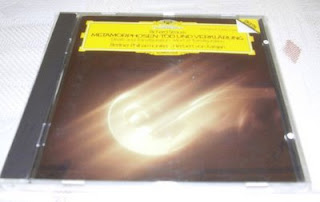


Richard Strauss Metamorphosen conducted by Karajan is considered as one of the best!
See comments:
| By | Michael A Pahre |
The 3rd symphony is a unique piece of classical music in that virtually every human emotion can be found among its six movements and many pages. While Mahler later discounted his programmatic descriptions of the movements, they genuinely provide insight into this work. The first movement, as long as anything Bruckner ever wrote, describes the awakening of the world and begins with a glorious horn soli that can be found nowhere else than in Tchaikovsky's 4th Symphony. The work passes by the animals and flowers, finally arriving in the wisdom of children and love in the 5th and 6th movements, respectively. The finale ends with one of the most beautiful yet dramatic passages in all of late German Romanticism.
Jascha Horenstein is not a marquee name conductor, but this one recording from the early 1970s vaulted him to exalted status among aficionados of the Mahler symphonies. He draws a top-notch performance from an orchestra which is not among the world's best. The horn section plays with remarkable sound and intonation, the trombone, posthorn, and violin solos are all among the best to be found in any recording, and the pace of the entire work is careful laid out to the listener. I first purchased the LP two decades ago, and it has remained among my most treasured recordings. While Bernstein's recording with the New York Philharmonic in the 1960s is thought by many to be the most exciting or definitive, or the recording by Levine with the Chicago Symphony as having the greatest overall sound, the Horenstein recording attains the best overall performances and unity of expression.
No comments:
Post a Comment